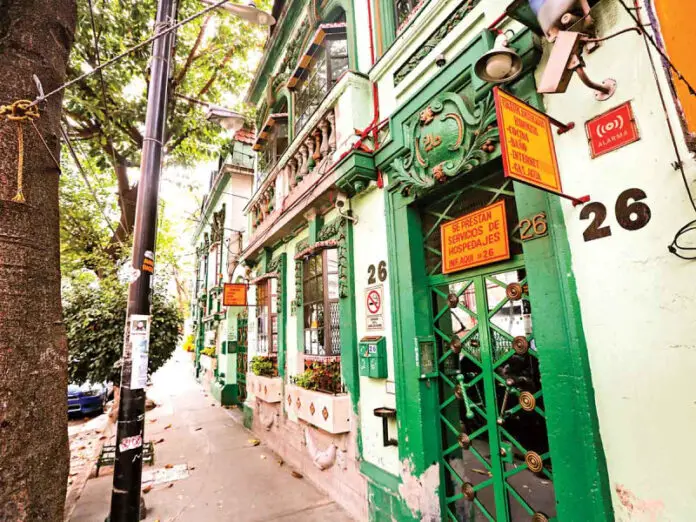The passage of migrants through Mexico City and their increasingly long stay has created an irregular lodging market.
Owners or holders of properties offer rooms, mainly to Haitian, Venezuelan and Central American citizens, who will have to share a room with three, five or up to eight people.
In addition to overcrowding, these rentals lack contracts and guarantees for both parties, and the phenomenon has grown to such an extent that condominium, neighborhood and social dynamics have been affected.
The phenomenon is experienced in buildings in the Historic Center, an area declared by Unesco as a World Heritage Site; Santa María la Ribera, which in recent years has seen the growth of restaurants, cafes and art galleries; San Rafael and Tabacalera, whose polygons are delimited by avenues as important as Insurgentes and Reforma, and Juárez, neighboring colonies such as Roma, with which it already shares some leisure and recreation dynamics.
This in the Cuauhtémoc mayor’s office, but it also happens in the Anzures colony, of the Miguel Hidalgo mayor’s office, and in demarcations such as Iztapalapa and Tláhuac.
They are apartments, single-family homes and tenements adapted to accommodate migrants, which are advertised with signs on their facades and posters on poles.
They offer services such as “hot water, kitchenette and internet connection” for about 350 pesos per week, on average.
But “many times it is only a room, occupied by between six and eight people,” assured Excélsior a Venezuelan migrant who rents a room in Santa María la Ribera and who asked for anonymity.
Each house or apartment is occupied by up to 20 or 25 migrants.
Given the large number of migrants who come to rent a room, it “becomes impossible to stay inside and they spend it on the street,” causing, even, fear among the neighbors, says one of the inhabitants of the Santa María la Ribera colony.
In the area there are many houses where they rent rooms, like tenements. Right now, they are full and because they are small rooms, they (the migrants) are really on the street, they are on the corners, on the sidewalks, almost all day,” said Alejandro Rico, a neighbor of that colony.
On streets such as Doctor Enrique González Martínez, Amado Nervo, Doctor Atl and Ribera de San Cosme it is common to see dozens of migrants, even with minors, sitting on the sidewalks, as could be verified in tours of the area.
The generation of garbage and noise in the streets has been such that the landlords themselves place posters at the entrances of the houses warning the tenants that “if they make noise or throw garbage on the streets” they will see “the need to deny them lodging”.
They are already many and the more, of course, the situation will worsen,” said Zeferina Nava, a 76-year-old woman and six decades living in Santa María la Ribera.
For the elderly woman, the high presence of migrants has more drawbacks than benefits.
More cons than pros. They are more cons because, in the long run, any excess is bad and we are having excess (people) from other countries and without work here. It is a very delicate, very serious problem, that must be addressed,” stressed the neighbor.
At other times, the head of Government, Martí Batres, has referred to the problem of immigrants in the city and has indicated that it is one of his “important concerns”.
He said that humanitarian attention must be given to the brothers of other nations, but also to the neighbors of the different colonies so that “there are no social conflicts, but harmony”.
The leader recalled that the agencies in charge of protecting the rights of migrants are the federal and local human rights commissions, as well as several “spheres” of the capital government, among which he highlighted the Human Rights Enforcement Agency and the Government Secretariat, which work to find a solution to the issue.
The problem could worsen in the coming weeks in the city before the caravan of thousands of migrants that left Tapachula, Chiapas, on December 23, whose members decided to surrender to agents of the National Migration Institute (INM) in Mapastepec, Chiapas, under the idea that they will be brought to Mexico City to regularize their transit.
Source: Excelsior







